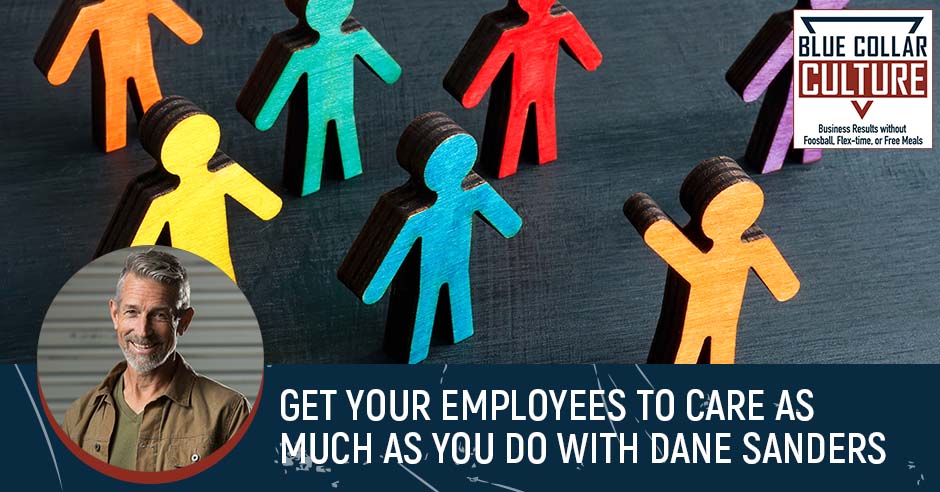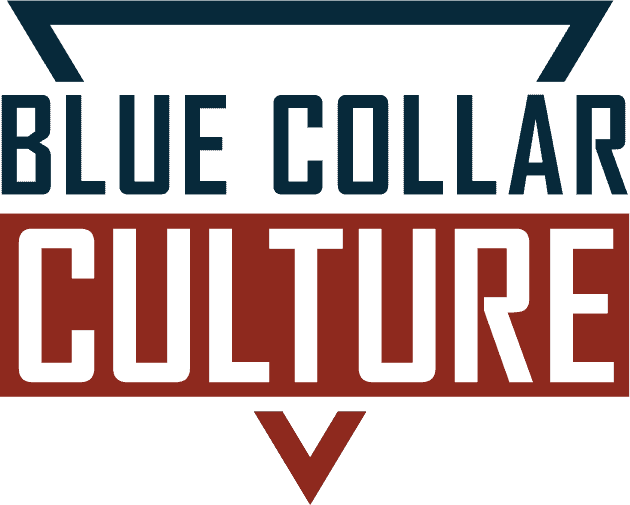
We all know that not every job will be our dream job. But that doesn’t mean we can’t find ways to love our current jobs. But how can leaders help employees love theirs? That is what Dane Sanders, Co-Founder and CEO of Tell Me Your Dreams, speaks about today. Dane helps business owners build cultures their teams love. At Tell Me Your Dreams, Dane interrupts the burnout cycle by helping employees achieve their dreams and promoting self-discovery, personal responsibility, and meaning at work. In this episode, Dane talks about how leaders can become strong and awake and get employees to care as much as they do.
—
Get Your Employees To Care As Much As You Do With Dane Sanders
I am super excited about our guest. In fact, I already know we are in for a real treat. He’s the CEO of Tell Me Your Dreams, and he focuses on working with companies and leaders to make sure that the employees are engaged and that they love their job. He has what he calls a culture design firm. Seth Godin called his writing a precious gift, and he even serves on Donald Miller’s StoryBrand facilitator team.
If you’ve heard us talk about StoryBrand before, it’s come up a few times. A great process for helping you communicate your message to the right people. Dane and I have something in common. We both love pouring into people and helping people become engaged. Dane has taught leadership and character development at Westmont College. He’s led development efforts for Academic Centers at Biola University. He goes on and on. The resume for this guy is incredible but do you know what? I want to jump right into the episode and hear from Dane how he got to where he’s at. I want everyone to welcome to the show, Dane Sanders, CEO of Tell Me Your Dreams.
—
Dane, welcome to the show.
Thanks, Ryan. Great to be here.
I am so excited about this. We’ve met a couple of times. We’ve chatted a couple of times. Our conversations need to get in front of our readers because I feel like I learned so much in spending a few minutes with you. I know this is going to be an amazing episode.
The feeling is mutual. My sense is that if we could somehow wonder twin powers activate and form something powerful, we would do some damage, so let’s get into it.
I asked the same question to everybody on the show because, for many business owners, there are a lot of things that we start to believe that aren’t true. Rules that we create for ourselves. Rules that others have created for us. In the work that you do, what do you think is the biggest myth?
It's normal for people to wake up and see themselves as heroes of their own stories. Click To TweetWhen I think about the human condition and out of the box of how people are wired, it’s normal for people to wake up and see themselves as the hero of their own stories. We all wake up and go, “What’s going on for me?” It’s natural. When those people who wake up and like that, and they go and they lead their organizations, they are tempted to think that because they are passionate about their work, their people should be as passionate as they are.
It’s not a conscious belief. Sometimes people expect it because they are paying them a lot of money but there’s the sense of like, “I am so excited about what I’m doing. Why are these people not as excited?” the reason is that those people woke up that morning and thought they were the hero of the story. Now we have two heroes in the story. That’s a problem. It’s not a very interesting story narrative, and we are competing.
When people can figure out some alternative roles in the story, the story gets way more interesting. What’s unique about the business owner, the leader, is the leader has a role available to them that their employees don’t have. When they can tap into that, when they can decide to be the guide in the relationship, everything changes.
There’s some Donald Miller stuff in there. I heard that. It’s interesting. I hear a lot of people tell me, “I can’t get my people to care.” I’m sure you’ve got some ways to help solve that and get them excited. The easiest thing to forget is that we hire people. They’ve got hopes, goals, dreams, frustrations, problems, and drama. They’ve got all of it they’re dealing with. If you forget that they’ve got a personal life to go home to that may not be perfect, and you don’t care about that stuff, how can you ever expect them to care about your business?
I’m glad you mentioned Don. He is a good friend, and we’ve done a lot of work together over the years. His contribution to my own take on life is amazing. Let me back up. I will give you a quick snapshot of what got me to now. When I was an undergrad in college, I studied Marketing. At the end of my Marketing degree, I felt like I had learned how to manipulate people to buy things they didn’t want or need.

I thought, “That’s gross. I don’t like that now. What am I going to do?” I went to grad school and studied philosophy. I study philosophy and virtue ethics. How do you be a good person? Can you have a good life? Is that even possible? I was running away from marketing. That’s what I was doing. If you know anybody who’s graduated from grad school of philosophy, you know they are unemployed or their teachers.
I decided to become a teacher. I was lucky enough to do that. I’m teaching leadership and character development at this Liberal Arts college up in Santa Barbara, California. I read this book by Donald Miller called Blue Like Jazz. This is a million years ago. This is a New York Times Bestselling memoir. It was incredible. I made a movie about it. Don wrote a little chapter about this guy named Greg Spencer. Greg was a colleague of mine at Westmont. I basically worked my magic to try to get Don to come to campus to talk to my students. That’s how I met Don years ago.
Since then, Don has introduced me to the profound nature of the story. His story is so deeply built into our guts, into our DNA. It’s the human language. It’s how we make sense of the world. That can be for good, and it can be for not. Those ideas, I’m thinking, “What story are you living into? What story are your people living into?” They are in a story. If you can help them upgrade their stories, everything transforms.
Even me with my marketing thing. The other guy that I met around that time was a guy named Seth Godin, who you and I both know. Seth, first professionally and more personally, enrolled me in the idea that you could do marketing different. I’m a fan of marketing. I love marketing now. It’s amazing but it wouldn’t have happened if someone didn’t choose volitionally to be a guide in my life to invite me into a bigger story than I was living.
I was looking for hacks and shortcuts to everything. Seth came along and said, “Slow this train down. You can get where you want to go way faster, doing things 1 day at a time, 1 foot in front of the other but do the right things and the right way at the right timing for the right reason. You will see something change in your people.” Like Seth did in me. What we are talking about is how we upgrade people’s lives because of the position we hold as leaders but we do it in a way that is going to serve you and your company. That’s not the first benefactor. The first benefactor of the humans was called to steward and lead well in these seasons.
Leading is not having a transactional relationship with your people but a human relationship with them. Click To TweetThere’s so much to unpack and your story of how you got to where you are at. I love how you started with the marketing route, which at the end of the day, this is what I believe. Everything we do is marketing. One of the big shifts in the way we recruit is we help people understand that recruiting is a marketing activity. They forget that. They think, “I write a job ad. I give it to HR, and they take care of it.” It’s very sterile and cold. It’s okay if we hurt people we don’t know.
That’s the way it is. It’s not that that’s the right way to do it or there’s a law that says, “That’s how it has to be done.” It’s the way it has been done because most people don’t like to recruit. They don’t like to grow their companies on the people’s side. They do it because they have other goals in mind. You had so much in there but what do you think is holding people back? It sounds like you had a lot to learn. You went on your own journey. I’m sure a lot of our readers are like, “I don’t have many years to figure it all out.” What’s holding them back and keeping them from getting their people engaged and having these conversations with their people?
First is what you said. It’s not having a transactional relationship with your people but a human relationship with your people. If you look at them as human beings like you described with real life, real challenges, the universal is everybody struggles and suffers. If you think about like, “Why do people quit their job?” Nobody quits their job because they didn’t like the company. They quit their job because they didn’t like their supervisor. They didn’t like the person they were working with. If you can be where you treat them like human beings, it’s amazing how much they will respond.
Leading with, “I wonder what these people are up against?” Getting curious about their real lives. Having a coffee. Let’s say you have 50 employees. Have one coffee a week for a year, and everyone will feel like a million bucks because the boss cared enough to say, “What are you doing?” The company we run is called Tell Me Your Dreams. The reason we call it that, it’s a horrible name for a company probably, is because what we do is we say, “If you are going to do one thing, even if you don’t hire us, sit with your people and say, ‘Tell me your dreams. What do you want in life? What do you want?’”
The reason we talk about dreams and not about, “What do you want” directly is because they will say, “I want a raise.” Let’s get the big picture here. If you had the raise, things going your way, if you could wave a magic wand in your life, what would happen? What is your dream?” People can internalize the woman or man who’s leading this place cares enough about little of me, my dreams, and that they think about me more than how I can serve them; everything transforms. A motivation arrives. The way we say it is if you invite dreams, you discover drive, and a whole new world opens up in terms of people’s outlook at work.

I can see a bumper sticker that says, “Invite dreams. Discovered drives.” A little plaque when you walk into the office or something.
It’s true. Again, it’s human. Everyone wants to get after it with their lives. If someone is working in a job that they didn’t have when they were kids. They want to be a fireman, a cop, an astronaut or be whatever, then they grow up. Let’s say they are in a role, a job, or even an industry that they never would’ve thought about. It happens all the time. That’s most of the world.
If you don’t invite meaning into those roles, this is how you do it. You talk about their aspirations. You talk about what they care about, at least as much as you want them to be thinking about your company’s mission statement. Care about their dream statement, what they want, and things open up. It’s natural. It’s human. It doesn’t require heavy lifting. There’s no brain damage required except you got to care. You got to care about these people. Care like give a rip. If that’s all that shifted for most people like you said, “I’m going to choose to care for one employee a day differently than they are expecting,” a whole new world will open up.
I agree with everything you said but I know there are people reading this now going, “Dane, I’ve sat down and talked to my people about what they want out of life, and they give me a, ‘Oh,’ answer or they give me something that doesn’t feel like a thought through. My people don’t care.” I can see people reading this and thinking, “They don’t care that I would care about their dreams.” Help me overcome that objection.
First of all, if that happens, you are in good luck because what that means is it’s not that your people don’t care. Your people have never been asked the question. This is their first rep in answering what they should do. In fact, most people, if you ask them what their dreams are, they are like, “Lose weight.” They don’t know. They are dream deprived. They have been in survival mode their whole lives. It’s going to take a couple of reps for them to figure out what they want. If you can be the one that helped them figure it out. Now, you are like Yoda. You are the person that opened up a vision for their future. What if they don’t have an answer? Assume that they do. They just don’t know it yet.
If you invite dreams, you discover drive. Click To TweetThey are going to credit you as a person who helped them figure it out. You get curious about them. This is what I do with my kids all the time. I will say, “What’s the answer to some question?” The answer that every teenager says is, “I don’t know.” I say, “If you did know, what would you know?” They always have an answer. That’s the first line of defense. Do you care when you ask this question? If you can get through that line of defense, now you are entering into the space of real connection with your people. Don’t get thrown off by that easy distraction. It’s an invitation to go deeper and take your time. There’s no rush in these conversations.
That’s something I’ve learned as I’ve grown up professionally. As a child, I had lots of big dreams. I wanted to be an astronaut, wanted to do this, wanted to do that, and somewhere along the line, that was probably a school guidance counselor that said, “Stop it. You need to get a job. You got bills to pay. Be realistic.” I look back now and don’t know who it was that would have done that but I promise you. There were people that said, “No, dreaming big doesn’t make sense. It doesn’t put food on the table. It doesn’t do these things.” I think part of it too might be that people were told to stop dreaming.
There’s no doubt. It’s a tragedy. Bless the guidance counselors’ hearts. They were trying to help. They are not evil people but they were answering a different question. The question about dreaming isn’t real. Like if I’m dreaming about being an astronaut, I’m not thinking about how I’m going to eat dinner tonight. Those are two different conversations. One is a 20 or 30-year conversation, and one is a 20 or 30-minute conversation. I got to get the right wavelength for the conversation I’m in.
It wouldn’t have been great if your guidance counselor had said, “Here’s the deal. There are two things you need to care about in life. One is today, and one is tomorrow. Tomorrow is the dream question. Today is, ‘How are you going to get that girl to go out with you on Friday night or what job do you want in life? How are you going to take your next step?’” If all we do is serve the short-term and we never get to the long-term to our future self, we are robbing ourselves.
We wake up 20 or 30 years later and go, “How did I get here? I dreamt of something bigger, and I forgot.” Some people, when they are reading this, are remembering. That’s amazing because there’s still so much time. It’s not too late. Even if you are the leader and you park your dreams back in twelfth grade. Get back to it because there’s gold in those hills. What’s tragic is people blow it off. They have time left but they don’t take advantage of that time. It’s amazing how quickly things can turn once you get clear and committed.

That was incredibly impactful for me personally. I’m sure there are people reading having the same thing going, “If I don’t dream, it’s probably tough for me to help others figure out their dreams.” That’s what I heard you say. I know you didn’t say that but like, “Wow.” At some point, maybe I’m not dreaming big enough, so it’s hard for me to lead others toward their dreams.
This happens all the time. We will come and work with organizations, and the organizational leader is excited to bring us in to help work with their employees. They want to help their employees love their job. If they love their job, they are going to stick around longer. They are going to engage more. You are going to become famous, become a talent magnet for other people to come work there. All those things are great but somewhere along the line, the leader, if they are tuning in and usually what happens is they will be there for the intro.
Let’s say I’m giving a series of talks or something. They will come for the first one to introduce me. They are getting credit for bringing this in. It’s awesome. Good for him or her. Ten minutes in, they are still in the room. “They got a meeting but will get to it in a second,” and that’s good news. That means they are not there now because they are serving their people. They are there for themselves, which is good news. It’s an invitation for people to treat themselves like humans too while they are taking responsibility for the leadership roles they hold.
I feel like there’s so much information you shared. I feel like we have already been on the show for an hour. It’s all many thoughts, so many directions. I love this because what I heard you say was if we want to get our people dreaming, get them engaged, and care about the business, we have to do the same thing ourselves as leaders. Whether that means that we need to have a mentor that’s saying, “What are your dreams?” we need to learn how to hold ourselves accountable to make that happen, which I’m sure you know. I’ve heard many times that the hardest person to hold accountable is yourself. There’s so much opportunity.
This is an unpopular belief. I don’t think we can even hold each other accountable. What we need is more of a sense of space to account. Let me explain what I mean. Accounting for me, and this happens all the time. You and I, off the air, are talking about this fun project I run called Men and Women Of Discomfort. We get together and do wacky things for 90 days. People work out six days a week, and they intermittent fast.
What's tragic is people have time left but don't take advantage of that time. Click To TweetThey basically do everything we tell them. They make one choice to opt out of their choices, and we choose everything for them for 90 days, when to eat, when to sleep, what to eat, what to drink, when to get in cold water, cold showers, to hold their breath, when to do anonymous good deeds for others and to meditate. We do all these fun things. It’s super fun.
Our tagline is, “It’s probably not for you.” It’s for a reason because it’s the thing where people say they are so happy they’ve done these things but it’s very difficult to volitionally say, “I’m going to put myself on the hook like this.” Those who do have this radical transformation. It’s super cool. Inevitably, people come in, especially at the beginning and they say, “I’m so excited. You guys are going to keep me accountable.”
I’m like, “We got to stop this cancer right out of the gate. No one is going to hold you accountable because, do you know what? If we are the ones holding you accountable, who’s responsible? If you fail in this program, who’s responsible? Are you going to make me responsible? We are not responsible. You are responsible. Do you know what else? If you succeed in this program, it’s not because we did anything. It’s because you did something. You showed up for you and your life.” This is where it is the hardest thing to take into account for ourselves.
It’s the only thing that makes the difference. If I don’t have someone in my life that I’m willing to say out loud, “I said I was going to do this and broke my commitment or I said I was going to do this and made it. I’m accounting.” That’s the way where people start living more authentically. They are more real and showing up differently in their lives. As a result, they get the benefits. They look like superheroes, their capacity to do things because they can do hard things. When everyone else around them, they crumble when it gets difficult. We don’t need that in leaders now. We need leaders who can stand up when we need them to.
If there’s one thing that I’ve learned in the last decade or so, being an entrepreneur. Number one is that we are capable of much more than we give ourselves credit for. I’m not talking about, “I can go make more money or get a better job.” It’s amazing what the human being, the human body, can do when the rules are gone. We talked a little bit about that in the beginning. We talked a little bit unfair too. All these rules we apply for ourselves, “We can’t say that. We can’t do that.” We have all these rules that society has “created for us” that we believe to be true. Those rules are the number one thing that holds many of us back.

Even what you spoke about earlier with the guidance counselor could be a rule. It almost may be an agreement. The metaphorical guidance counselor, whoever he or she is, said that to you. You could make an agreement with like, “That’s the limit.” I remember when I was a kid. I was working on something, and my legal name was Dana. My mom would say, “Dana, you are not very mechanical.”
I made an agreement with my mom that I didn’t know how to put things together until I turned 25 or 30 and went, “What if that wasn’t true? What if there was more available?” I started making crap, and it started working. All of a sudden, I could tell myself a new story. This is what I mean when I say tell yourself bigger stories. It’s interrupting those agreements, those rules, and limiting beliefs in our lives so that we can get after things that we thought were impossible but they weren’t tried yet with any effort. You might fail but if you don’t run that risk, if everything is a sure thing, talk about a boring existence. We are not going anywhere new. We are stuck in a rut.
We started with the stories that others were telling. The stories that we are creating, but now, we are talking about the stories we tell ourselves. A lot of story going on here, and I agree with you. If we go back to before there was writing, how did human beings communicate? Through story. It’s the oldest way of communicating with people, and it still is relevant now. That’s why marketing is so popular now. Everybody’s got a story to tell, and we got to figure out how to tell the right story to the right people at the right time.
It’s so empowering when you hear a story that calls us up to life. There are conversations. I’m in a lot of times where people are getting called out. I don’t think we need quite as many call-outs. What we need are call-ups. There are invitations to occupy the space in our lives in a fuller way. I know there are readers who are reading these words. There’s something tingling in their guts about, “What if me? What if I took a bigger risk on me? What if I was willing to put myself on the hook to get after that?” It could be an old practice you had or you’ve got a little out of shape. You haven’t gone on a date with your wife in a while.
If you decided, “This is as good as it gets, so let’s ride this one home.” What if there was more? In particular categories, the ones that you are scared to go to. Even as I’m saying this word, some of you who are reading are sweating a little. If that’s you, that’s what I’m talking to you because if you are not sweating just a little and a little bit uncomfortable, you are probably missing out on a lot of gold.
I don't think we can even hold each other accountable. What we need is more of a sense of space to account. Click To TweetThe brave ones, the courageous ones who are noticing that and go, “I want to barf but I’m going to go forward anyways. I’m going to take a risk. I’m going to make that call. I’m going to set that appointment. I’m going to call Ryan. Let’s finally pull the trigger.” If that’s you, you have a little window of time to take action. If you don’t do it soon, the window will close, and you know it. If you have any vision about what I’m saying, your opportunity is to do it now.
We go back to those analogies. We talk about these analogies and metaphors to help people understand where we are going. I think about the concept of growing pains. I’ve got little kids at home. My legs hurt because they are growing. Growth doesn’t always have to be bending over painful but it does hurt a little bit at times.
When you have a strong workout or you go on a big long hike, and your muscles are sore. It’s because they are growing. Not that it has to be that painful but a lot of times, we know that there is pain associated with growth, and because of that, that fear kicks in of, “What if?” We start telling ourselves all these stories that aren’t true. As we wrap up the show, Dane, I want to think about those people that are on the fence that are thinking, “I know what I need to do but I’m scared to do it because it might hurt a little bit.” What do we tell them?
Let me offer three things. Not just for the individual but also for the people that they are leading. The first thing to go full circle to our conversation, it might hurt a little bit to ask a junior entry-level employee for coffee and them say no. It might be a little awkward. It might feel like you are not quite as relevant as they think they are or whatever it is.
If you sit beside systematically to have leadership coffees where you know your role is to be the guide, virtual or otherwise, with every team member in this next season and ask them, “What are your dreams?” that’s going to be uncomfortable but I promise you that you will gain fruit. That’s the first thing I would say for the others that you are serving. Second, I understand that it might feel vulnerable but you want to get to a place where you are being honest with your own dreams too.

Where even though you have a lot on your shoulders, you are carrying a lot of weight with the organization or families you are leading to find space for you to stop to retreat. Maybe it’s one day a week, a Sunday. In the old days, it was called a Sabbath. Take a break, stop, think, and breathe. Have an app first, maybe. Go for a walk.
Talk to a buddy about your own dream conversation but not with those you are leading but with somebody that’s your peer or someone who’s a guide to you, and get real in those conversations. If you do that, both in directions, both in who you are leading, calling up, and calling yourself up where you are going to do is, you are going to find some freedom, some new vision for where you want to go. Some people need that.
The third thing I say is as you begin to identify for the people that you are leading and for yourself what your dreams might be. Can you get back to now and say, “Is there one single next step that I can make?” Don’t make a conceptual. Don’t make it in their head. Like when your employee says their dream is to get out of student debt or their dream is to buy their first house or whatever. Get them to make a single first step but that’s not true for them. It’s true for you, too.
What’s the single next step that you need to make? If it’s not the thing that you came up with, what is it? If it’s not like you, who’s going to do it, who will? If it’s not now, when? The time is now. Life is too short. One of my best friends, earlier this year, January 1st, 2022, he’s the guy that I started this Men and Women Of Discomfort with. His name is Tim Krueger, a 42 years old, Ironman, stud, and athlete. The best blue-collar curmudgeon you could ever imagine. The guy you want to hang out with.
He finished a year of suffering with stomach cancer, and he died. Two young boys, his wife, Jess, his birthday is coming up on August 14th. I miss the guy so much but I will tell you this about Timmy Krueger. That boy lived. He understood what was at stake. He was more alive in his last year of life than he was in the previous 41. You want to be like Tim Krueger. None of us are guaranteed another day, another breath, and if we are not taking advantage of the things that are in front of us now, we are fools. Wouldn’t it be nice if the stakes were too high? That’s my encouragement. Care about your people. Care about yourself. Do one right next thing and do it quickly because we are all on the clock.
It might feel vulnerable, but you need to get to a place where you are honest with your dreams. Click To TweetI don’t know where to go from there, Dane. That was amazing. I have to say, it’s probably one of my favorite interviews. It’s incredible. It got me thinking about a lot of things, too. I know there are people going, “Dane sounds like he knows his stuff. He’s probably got other nuggets out there, other tips, other ways I can learn or even connect with you.” How do people do that?
First of all, thank you for saying that and encouraging me, and thanks for leading, Ryan. What you were doing in this space is so profound. It’s one of the reasons I was so excited to be in this conversation with you. You are the real deal. The way you are leading, I know there are people at home nodding their heads now as they are reading like, “Ryan delivers over and over again.” Thank you for leading.
To answer your question. I created a website. Forgive the name. It’s a silly name but it’s called AskDane.com. It’s pretty simple. It’s basically a video walkie-talkie. You go there, press a button and say, “I’m Sally. I’m Fred. Whatever.” If you want to process or talk, it’s all private. It’s a one-to-one conversation. It’s asynchronous, so no meetings are required for you or me. It allows me to have a lot of conversations with a lot of people. If any of your readers would love to debrief, chat or ask a question about Tell Me Your Dreams or Men and Women of Discomfort or any of the things we chatted about. That’s probably the easiest place to go do it.
My last question is usually, do you have any offer or giveaway for our readers but you answered them both at the same time? That’s an amazing offer to be able to get some time to share with you, what they are going through, and what’s going on with them because of a quick little video chat. You can get them unstuck and help them take that next right step. Maybe even they can learn a little bit more about the work you do at Tell Me Your Dreams or even the Men and Women of Discomfort, both of those sounds like amazing things. Not only for our readers but probably for a lot of their employees as well, to help them with their dreams.
Thanks, Ryan. Thanks again for having me on.
Thanks for being here. I enjoyed it.
Important Links
Love the show? Subscribe, rate, review, and share! https://bluecollarculture.com/podcast/
